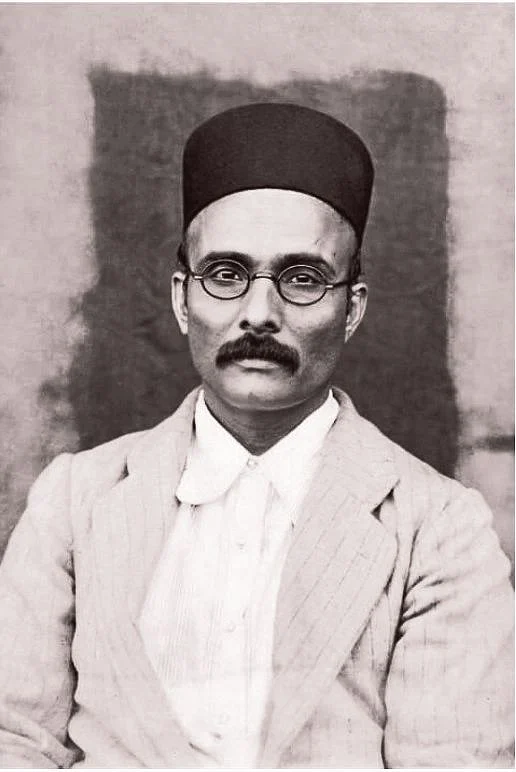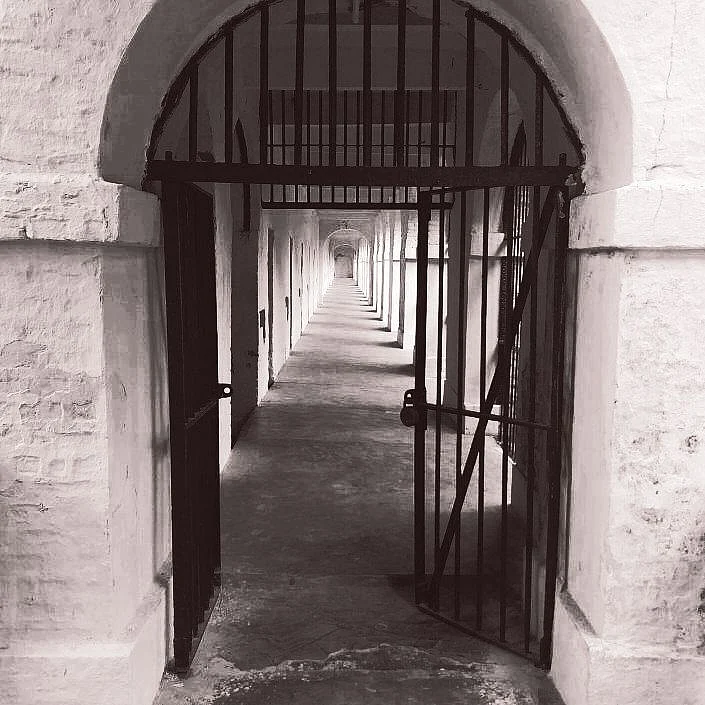Did Vinayak Damodar Savarkar – India's controversial political figure and freedom fighter, repeatedly appeal for 'mercy' while he was lodged in Cellular Jail? Or were his petitions only for better facilities in prison and early release? And did Mahatma Gandhi advise Savarkar to write 'mercy petitions' to the British, from the prison, as is claimed by many?
Here's decoding the truth behind Sarvarkar's mercy petitions from prison – claims vs facts.
Savarkar was arrested on 13 March 1910 for his alleged connection with the assassination of AMT Jackson – the British district magistrate of Nashik. Savarkar was in London when Jackson was assassinated, but he was accused of providing the pistol used to kill him.
An year later, on 4 July 1911, he was brought to the Cellular Jail – a colonial prison in the Andaman islands. Infamously called 'kaala pani', the Cellular Jail was majorly used by the British to exile and isolate political prisoners. His elder brother Ganesh Savarkar was arrested the year before.
- 01/02
VD Savarkar
(Photo: Altered by The Quint)

- 02/02
Cellular Jail (Kaala Pani)
(Photo: Altered by The Quint)

Petitions for Mercy?
Claim
Author Vikram Sampath wrote a two-part biography of Savarkar titled, Echoes from a Forgotten Past, 1883-1924 and A Contested Legacy, 1924-1966.
In October 2021, in a debate on India Today TV Sampath claimed that Savarkar essentially exercised his right as a prisoner by writing petitions to the British for better facilities in prison and early release. They were not really 'mercy' petitions.
All political prisoners were given this opportunity to file these petitions. Along with Savarkar, many others like Barindra Kumar Ghosh and Sachindra Nath Sanyal filed these petitions. Don't call them mercy petitions. It's a petition. When today you file a bail application, you're asking the government to release you.Vikram Sampath in a debate on India Today TV (13 October 2021)
Fact
Sir Reginald Craddock, then Home Member in the Viceroy's Executive Council, met Savarkar in prison. Savarkar reportedly personally submitted his petition to Craddock. In fact, in this petition, dated 14 November 1913, Savarkar spoke of his earlier 'petition for clemency'
Vaibhav Purandare, author of another biography of Savarkar, reportedly said that both claims – Savarkar never wrote petitions from prison, and even if he did, he certainly did not seek clemency from the British, are untrue. (Source: BBC)
Mahatma Advised Savarkar to Seek Mercy?
Claim
In October 2021, speaking at the launch of another Savarkar biography, Veer Savarkar: The Man Who Could Have Prevented Partition, Defence Minister Rajnath Singh said that Savarkar filed his mercy petition on the advise of Mahatma Gandhi
It was being said that he (Savarkar) had filed several mercy petitions before the British government while he was imprisoned. But the truth is, he did not file the mercy petitions to get released from prison. It is a right of a prisoner to file mercy petitions. In fact, Mahatma Gandhi told him to file the mercy petitions.Rajnath Singh, Defence Minister (12 October 2022)
Fact
Historians and biographers claim Savarkar wrote at least six mercy petitions between 1911 to 1920, from Cellular Jail where he and his elder brother Ganesh spent almost a decade after they were sentenced to life imprisonment. His first mercy petition was reportedly received on 30 August 1911, within six months of being jailed.
Savarkar submitted his second petition, two years later, on 14 November 1913. In this petition, he mentioned about his previous petition for mercy. And subsequently filed at least four other petitions in 1914, 1917, 1918, and 1920.
Mahatma Gandhi who was practising law in South Africa, returned to India on 9 January 1915. That was four years after Savarkar filed his first mercy petition from prison.
Gandhi and Savarkar were ideologically opposed to each other. Historian Ramchandra Guha, referring to Savarkar's 'hatred' towards Gandhi, noted that when Gandhi's wife, Kasturba passed away, Savarkar refused to contribute to a fund that was created in her memory. Savarkar reportedly said, "Gandhi had never shed a tear for the martyred men and women hung and shot by the British.." (Source: BBC)
Yet, in January 1920, almost nine years since Savarkar was jailed, his younger brother – Dr Narayan Savarkar did the 'unthinkable' and wrote to Gandhi regarding his brother's release from prison.
Keeping their difference of opinion aside, even Gandhi replied to Savarkar's brother's letter, on 25 January 1920.
Two months later, on 30 March 1920, Savarkar filed a fresh petition seeking clemency for himself, his brother Ganesh, and his fellow prisoners. This was Savarkar's last recorded mercy petition.
Gandhi didn't specifically ask Savarkar to file a mercy petition. But despite difference of ideals, Gandhi built a case for the Savarkar brothers' release from prison, in an article dated 26 May 1920, in Young India – a weekly magazine.
Gandhi and Savarkar
On some occasions, Gandhi did criticise Savarkar's methods.
But Gandhi was always in favour of Savarkar's release from prison. He held a high opinion of the Savarkar brothers. He reportedly even referred to Vinayak Savarkar as bhai (brother).
A decade later, Savarkar walked out of the Cellular jail when he was moved to the Ratnagiri jail on 2 May 1920. He was finally released from prison on 6 January 1924, but was confined to Ratnagiri, until 1937. After his release, as president of the Hindu Mahasabha, Savarkar remained in India's freedom struggle.
Following Gandhi's assassination on 30 January 1948, Savarkar was arrested and tried for the murder. But after his acquittal on 10 February 1949, Savarkar remained active in politics, until his death on 26 February 1966.

